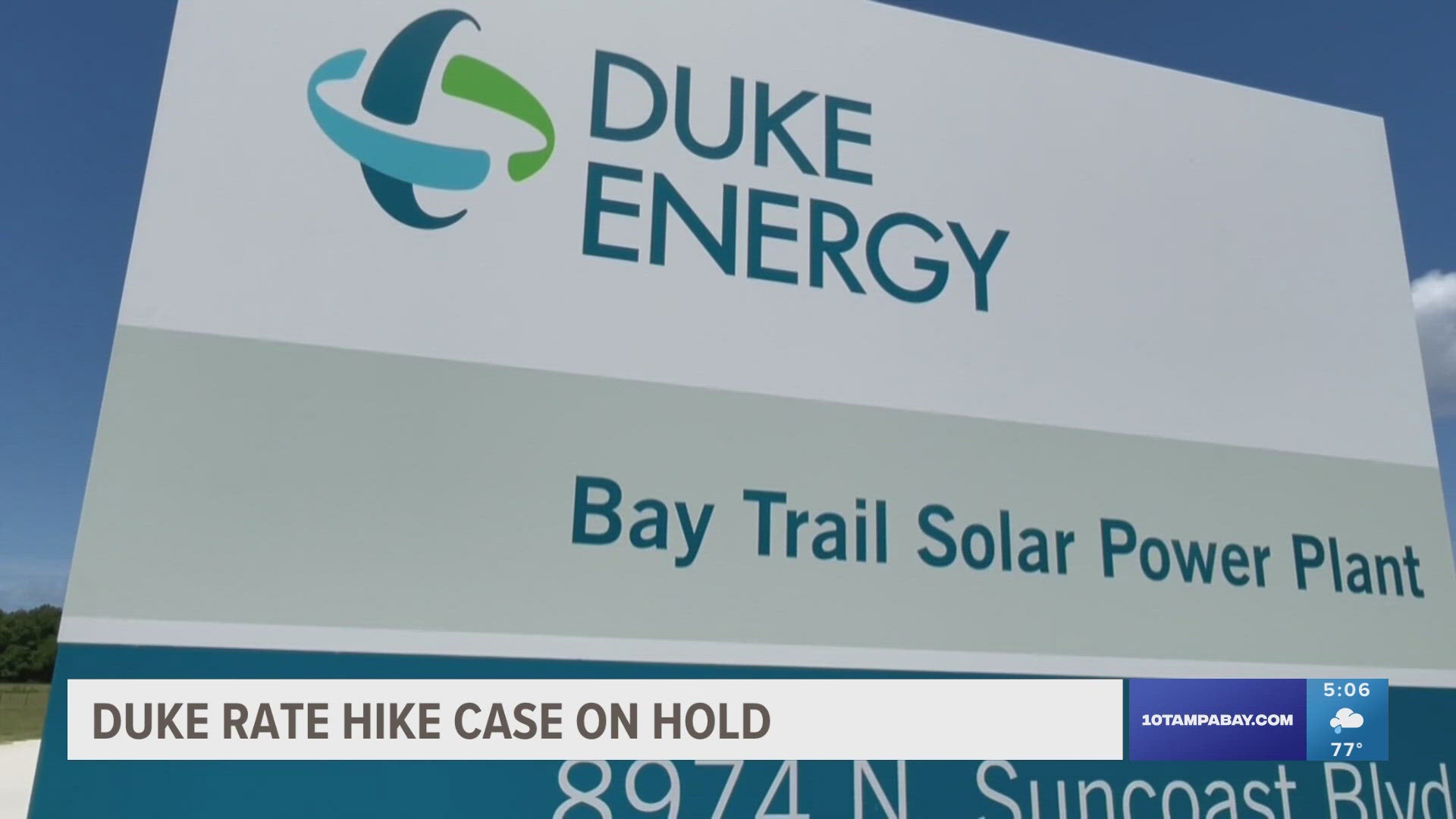TALLAHASSEE, Fla. — State regulators have paused a case that could lead to Duke Energy Florida raising base electric rates, as the utility and consumer representatives try to nail down a settlement.
Florida Public Service Commission member Gabriella Passidomo, who is overseeing issues in the case, signed an order Thursday that suspended a procedural schedule. That came three days after Duke and the state Office of Public Counsel, which represents consumers, filed a joint motion asking for such a suspension.
“As a result of the extensive litigation efforts of the joint parties (Duke and the Office of Public Counsel) and several other parties, an agreement in principle between the joint parties that resolves all issues raised in this docket has been reached,” the motion said. “The joint parties and others have committed to working together to draft a formal settlement agreement that memorializes all aspects of the agreement in principle between the joint parties.
"In order to focus on converting the terms into a formal settlement agreement and to avoid the unnecessary work and expense that the continued litigation of this case would require, a suspension of the procedural schedule is necessary.”
The motion did not provide details of the potential settlement, but Passidomo’s order indicated an agreement could be filed by Wednesday. That would provide time for the settlement to be considered during a two-week period in August that the Public Service Commission had set aside for a hearing on Duke’s base-rate proposal.
Duke’s proposal, filed in April, called for increasing base rates by $593 million in 2025, $98 million in 2026 and $129 million in 2027. The proposal said the rate increases would help pay for such things as adding 14 solar-energy facilities and to make investments to continue “providing customers with reliable, clean, and cost-efficient service.”
But the Office of Public Counsel last month filed expert testimony objecting to the proposal. Among the issues has been the amount of potential profit that Duke would be allowed to earn through what is known as a return on equity.
Base rates make up large portions of customers’ monthly electric bills, and utility proposals to raise base rates lead to highly technical cases at the Public Service Commission that last for months.
As a sign of the significance of the Duke case, numerous groups and businesses are parties, including the Florida Retail Federation, the Florida Industrial Power Users Group, the Wawa, RaceTrac and Circle K convenience-store chains, PSC Phosphate, the Southern Alliance for Clean Energy, the Sierra Club, Florida Rising and the League of United Latin American Citizens of Florida.
Settlements are relatively common in base-rate cases. For example, Duke, which is the state’s second-largest utility behind Florida Power & Light, is operating under a rate settlement that was reached in 2021 and will end this year.
Meanwhile, a proposal by Tampa Electric Co. to raise base rates also is pending at the Public Service Commission.

